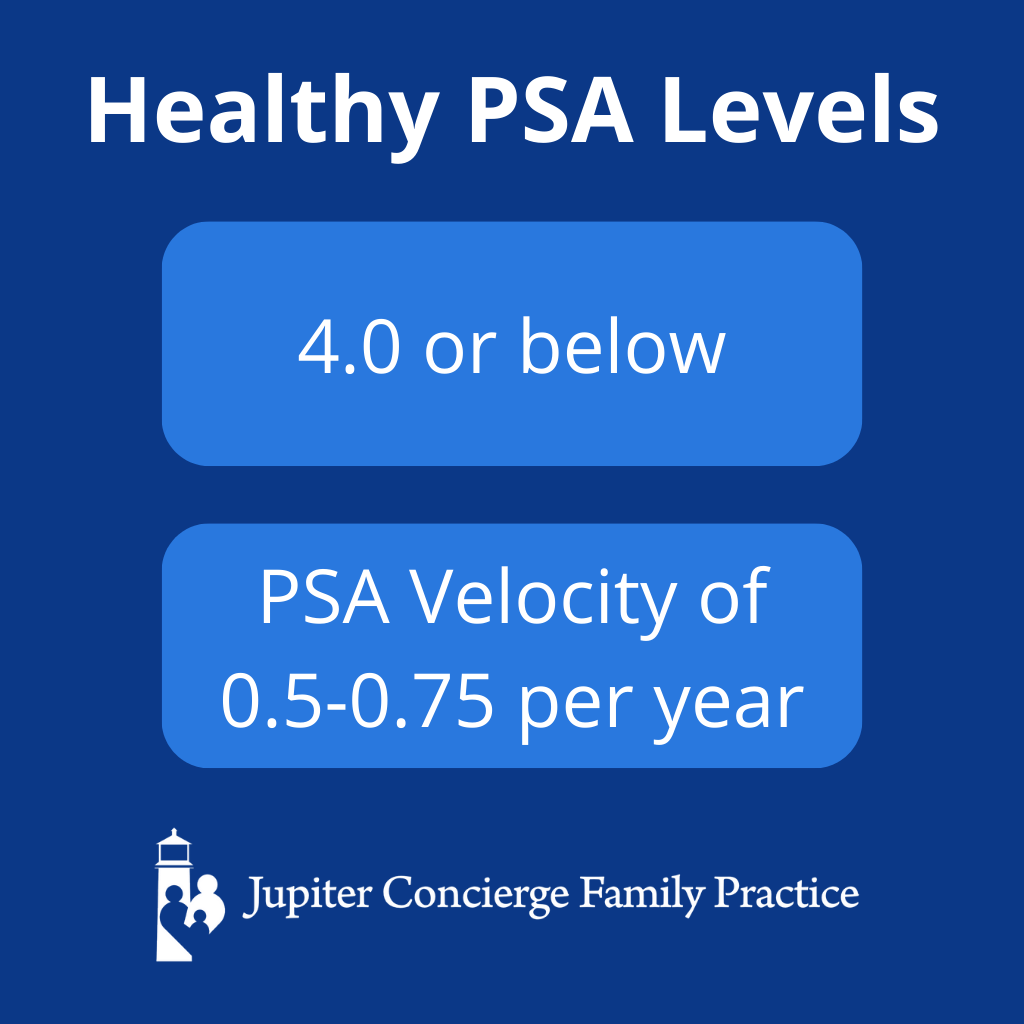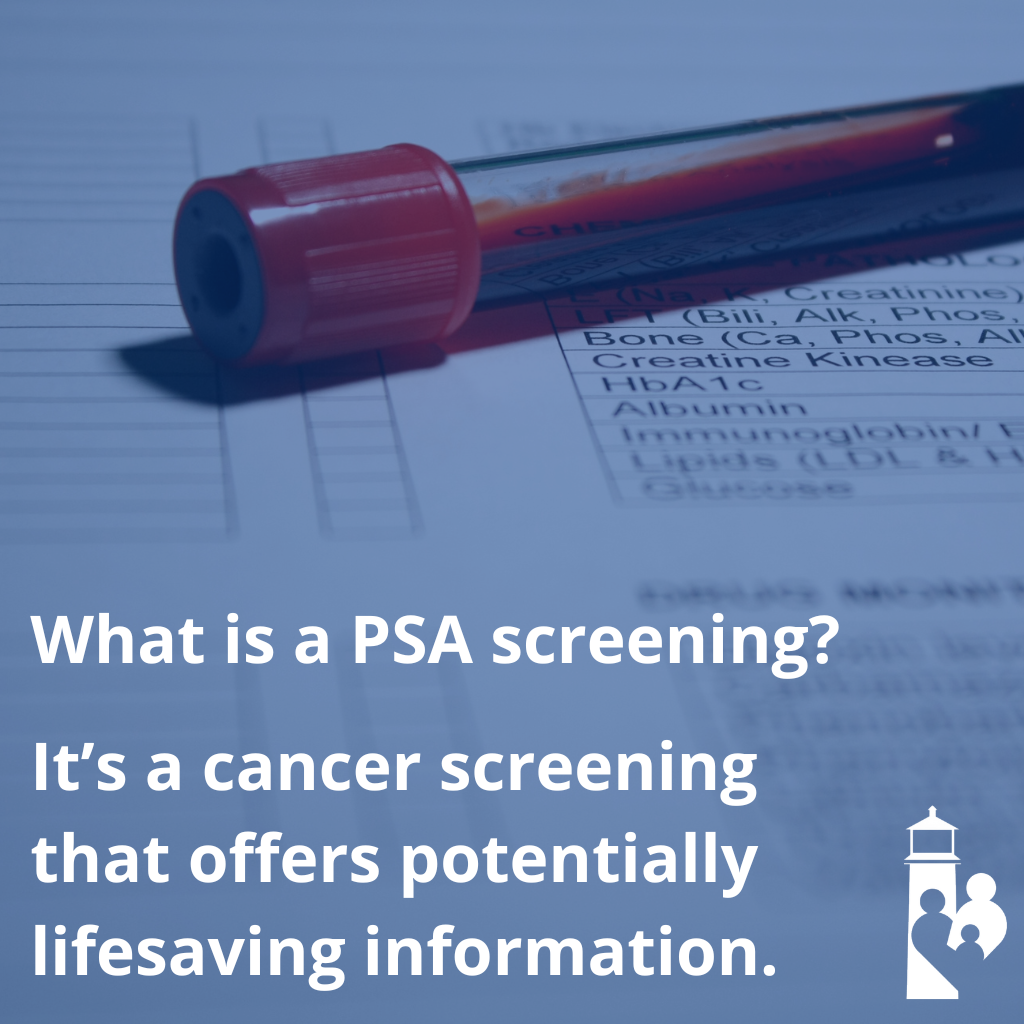
You’ve probably heard the medical acronym “PSA” used in the context of cancer screenings. But what is a PSA screening, and what does it detect?
Below, we’ll dive into the particulars.
What Is PSA?
PSA stands for prostatic-specific antigen. An antigen is a protein, and a prostatic-specific antigen is an antigen found specifically in the prostate.
PSAs are always in the prostate, but the amount increases in the presence of prostate cancer. That’s why doctors measure PSA — to detect cancer.
PSA Ranges
In general, we want to see a PSA level of 4.0 or below — but there’s nuance to this.
The amount of PSA naturally increases with age, but it should not increase beyond a certain rate. We call that rate of increase PSA velocity, and it should be between 0.5 and 0.75 per year.
For example, if someone’s PSA went from 2.0 to 3.0 in a single year, that rate of change would be alarming. It could be a sign of early prostate cancer, even though the numbers themselves are still within a range considered normal.
PSA and Early Detection
Not all prostate cancers are aggressive. In fact, in older patients, prostate cancer tends to be a less serious health threat than in younger people. The prostate cancers diagnosed in older patients are less likely to spread and cause death.
However, a prostate cancer diagnosis in a younger adult is very dangerous. Catching it early usually gives a much higher survival rate. This is why I recommend PSA screenings to all men over the age of 40.
PSA Screenings
The first step in a PSA screening is a simple blood test. It’s non-invasive and easy to do, so it’s an excellent starting point.
If the PSA score causes concern, the physician will recommend other tests that can provide more information, including an MRI. If imaging shows a tumor, a biopsy is usually performed. From there, a 4Kscore test can differentiate aggressive prostate cancers from those that aren’t as aggressive.
This data is important in determining next steps, because prostate cancer treatments can severely disrupt an individual’s lifestyle. Some treatments can have long-term effects like impotence and urinary leakage, and may not be necessary for non-aggressive cancers.
Keep in mind that a PSA score could be elevated for reasons that aren’t related to cancer. An enlarged prostate will affect PSA levels but isn’t necessarily tied to malignancy. A prostate infection could also mean higher PSA levels. Other factors include bike-riding and recent sexual activity.
What Is a PSA Screening: Final Thoughts
So, what is a PSA screening? It’s a cancer screening that offers potentially lifesaving information.
Remember that the overall trend of your PSA level is critically important, even if your level is within a normal range. And because so many factors influence prostate health, individualized care is the best way to prevent over- or under-treatment.

Dr. David Rosenberg
Dr. Rosenberg is a board-certified Family Physician. He received his medical degree from the University of Miami in 1988 and completed his residency in Family Medicine at The Washington Hospital in Washington, Pennsylvania in 1991. After practicing Emergency Medicine at Palm Beach Gardens Medical Center for two years, he started private practice in Jupiter, in 1993. He is an avid baseball fan and Beatles fanatic, since he was 8 years old. He has been married to his wife, Mary, since 1985 and has three grown children.
David completed additional studies at Mercer University, Macon, Georgia and obtained a BS in Chemistry in 1983.
“My interests include tennis, snow skiing, Pilates and self-development.”


